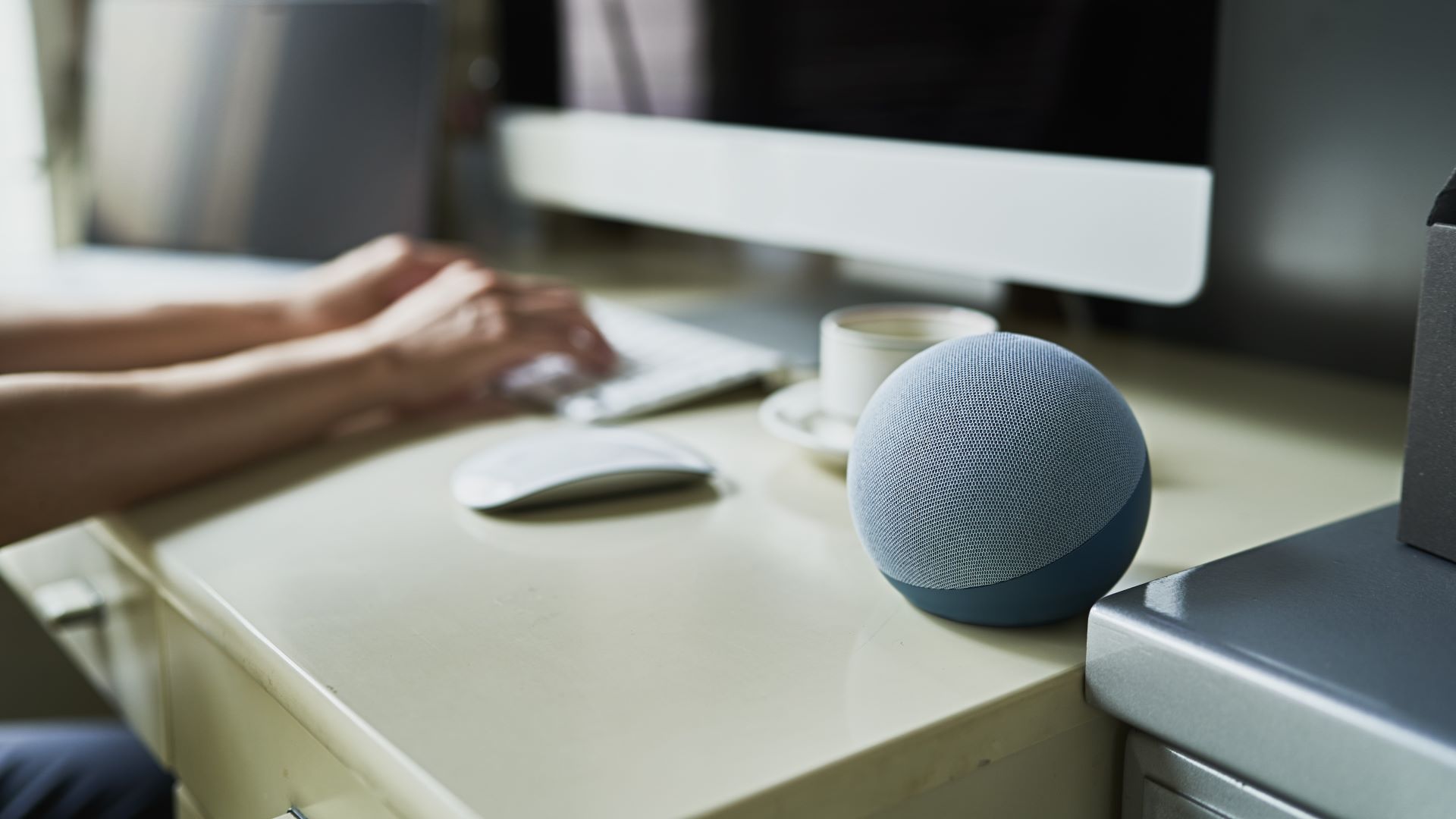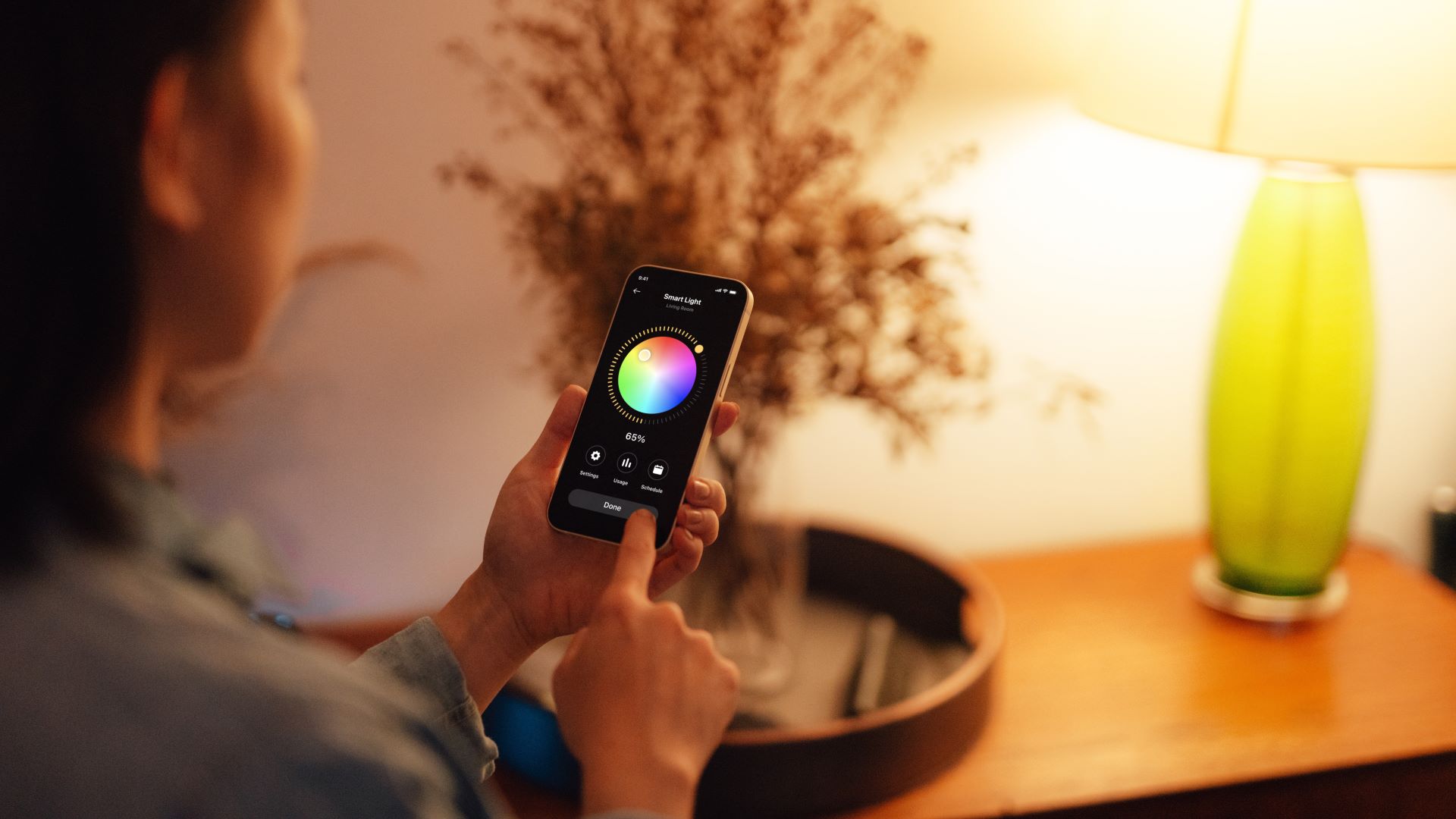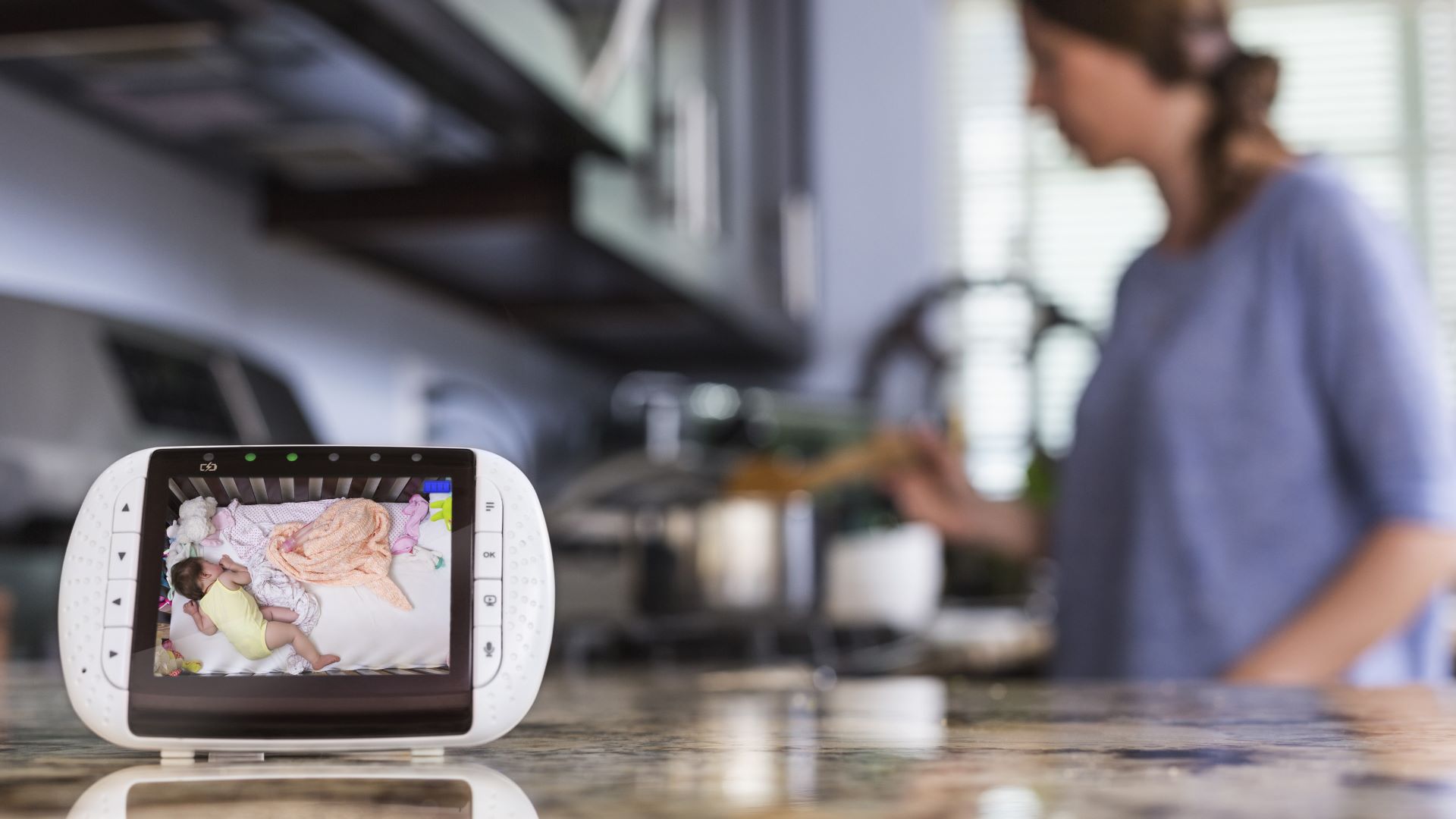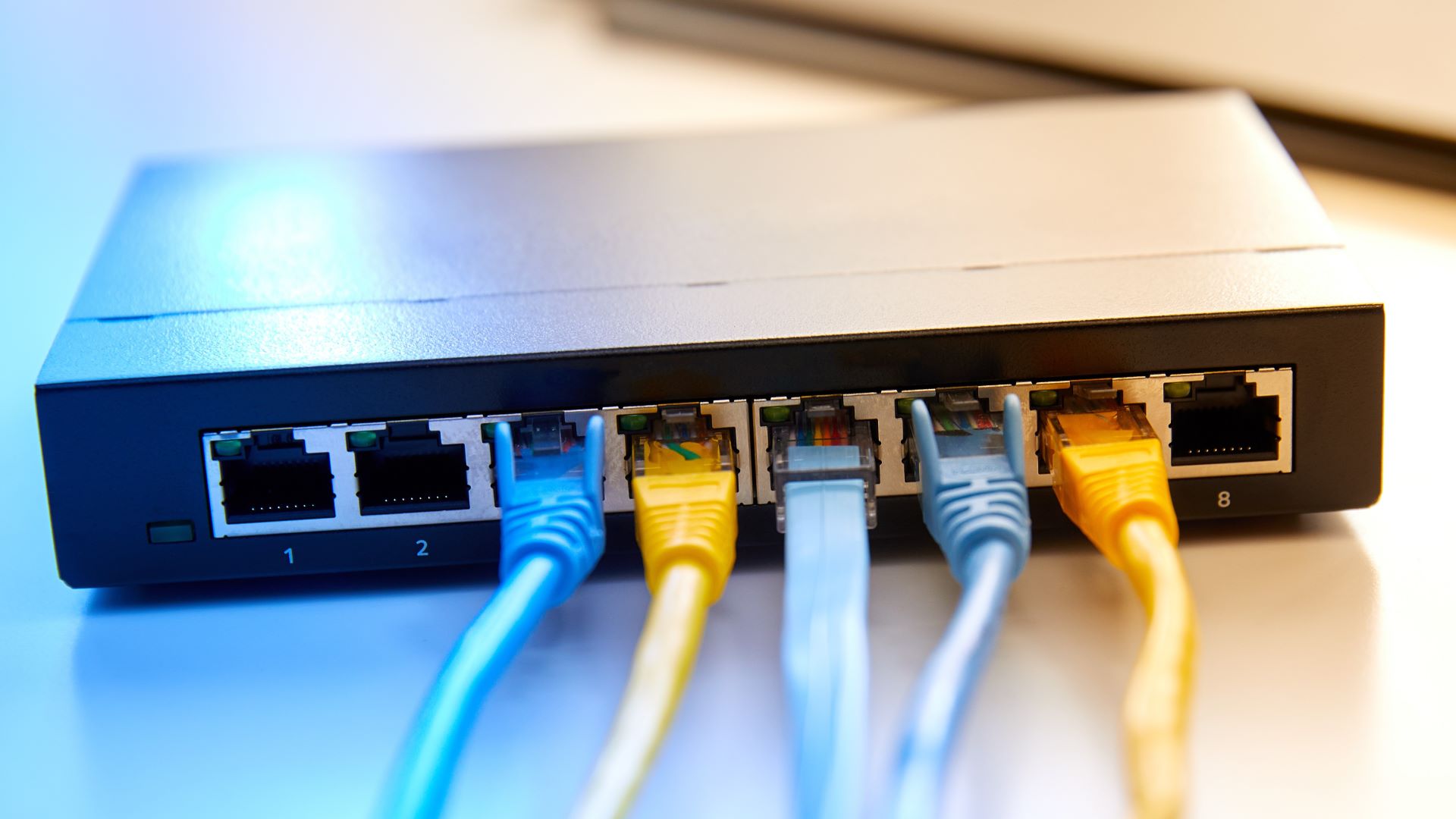Your nursery could get hacked - here's how to prevent it
Why the smart devices in your nursery may be presenting opportunities to hackers.

Whether you're a parent or expecting, the likelihood is you've put some thought into what your little one's nursery (or bedroom) will be like.
Modern technology has made strides in making put-down time as streamlined as possible, with smart bulbs that can be put on timers, smart speakers that can read your kids their bedtime stories, and a whole host of baby monitoring software that will put your mind at ease while they sleep.
Unfortunately, as with any Wi-Fi enabled technology, this technology can be hacked into and used to access your home network – or even spy on you. With a predicted 29 billion Internet of Things (IoT) devices across the globe by 2027, this presents 29 billion opportunities for hackers to get on various different networks.
Thankfully, there are steps you can take to protect yourself and your home, like using the best VPNs to encrypt your data. Read on to learn more about the potential risks these smart devices pose and what you can do to lower these risks.

Protect your smart speakers
Smart speakers and home assistants undoubtedly make our lives easier. Whether it's putting on your favourite song without lifting a finger, setting reminders or even ordering urgent groceries or things for the home, these handy helpers can really make your life a little less stressful. For parents in particular, these time-saving, stress-reducing methods all work together to make their lives a little easier.
In nurseries and children's bedrooms, these speakers can help soothe your little one(s) to sleep by reading them bedtime stories, or enhancing playtime with nursery rhymes and other songs for kids.
However, whether you have a home assistant and multiple speakers, or just use one speaker around your home, they do still present a cyber security risk.
Sign up to get the BEST of Tom's Guide direct to your inbox.
Get instant access to breaking news, the hottest reviews, great deals and helpful tips.
In fact, in December 2022, a cyber security researcher called Matt Kunze managed to exploit a software vulnerability that turned a Google Home Mini speaker into a wiretap. Another smart speaker software vulnerability discovered in March 2022 enabled hackers to instruct Amazon Alexa speakers to essentially hack themselves by taking control of an Amazon Echo's speaker and commanding it to make malicious instructions to itself.
While these hacks may sound scary, it is important to recognise that they are not super common. However, it is always a good idea to protect yourself from these potential hacks. To do this, we recommend updating your speaker/home assistant's software regularly, to make sure any important patches are on your device.

Protect your smart bulbs
Having lightbulbs that turn on when you want to wake up and off when you want to go to sleep used to be the stuff of sci-fi fantasy, but now with smart technology, it's a (very convenient!) reality for a lot of people.
Smart bulbs can lend a hand with childrens' bedtimes, offering them a slowly-darkening, warm-toned space to snuggle up and drift off quietly in.
Unfortunately as a smart device, smart bulbs can also be another avenue into your home network that hackers can use. Researchers from University of Catania in Italy and the University of London in August 2023 discovered that TP-Link smart bulbs could be hacked in order to steal the owners' Wi-Fi passwords.
Multiple security flaws in the smart bulbs meant that hackers could gain access to the user’s account details from within the Tapo app used to operate the smart bulbs. After gaining access to the app, they could then extract the SSID and Wi-Fi password from a user’s home network, meaning they could gain access to all of the devices connected to it.
This is why it's important to update your smart device's software regularly, so patches for any security flaws can be implemented and you can be kept safe.

Protect your baby monitor
Baby monitors are an almost crucial bit of tech for parents who are ready to have their children sleep in another room, but still want to keep an eye on them. Many smart baby monitors come with cameras, speakers and microphones enabled so you can see and communicate with your child.
Unfortunately, all this useful tech can be taken advantage of by unscrupulous hackers. In a chilling TikTok, Adele Kurin explained that her son had told her he didn't want the camera for her Owlet baby monitor switched on at night, claiming that someone was using the monitor's speakers to wake up, talk to and scare him.
When Adele went to secure the account, she found that the login information for her account had been exposed in a data leak, meaning the device could have been logged into by anyone who had access to the leaked details.
With this being said, the maker of the baby monitor said that it "reviewed all available data" regarding Kurin's baby monitor, "including firmware, mobile, and server logs" and were "very confident" no suspicious activity had been logged. Owlet also noted that there had been "zero confirmed cases of [its] cameras being compromised" and it had not identified any failures in its security protocols.
Regardless, this underlines the importance of using unique, strong credentials for each account login you create, as well as enabling two-factor authentication as this will alert you if anyone is trying to gain access to your accounts.

How to protect your smart devices from hackers
While the risks outlined above can seem scary, there are simple and easy steps to take to protect yourself. Read on to discover how to keep yourself and your devices safe.
Use a VPN
Installing a virtual private network, or VPN, is another simple yet effective way to secure your Wi-Fi enabled devices. VPNs work by encrypting your internet traffic and connection, giving you an extra layer of security on your Wi-Fi.
If you use multiple smart speakers, it's a good idea to use a router VPN. The best router VPNs will encrypt all connections to and from your router, meaning all devices connected to your home network benefit.
Keep your smart devices on a separate network
If you're worried about hackers gaining access to your home devices via your home network, then one solution is to simply take them off said home network.
This may sound complicated, but it's actually relatively simple. The best Wi-Fi routers and best mesh Wi-Fi systems will give you the option to set up a Wi-Fi network for your smart devices, but if this isn't available to you, you can always just set up a guest network.
Once all your devices have been connected to the separate network, they won't be able to be used to access your home network.
Use 2FA on your smart devices' apps
Another way to make sure you and your devices stay secure is to enable two-factor authentication (2FA) on any apps you use to operate your smart devices.
This will not only add an extra layer of security, but it will alert you if anyone is attempting to login to your account, allowing you to change the impacted account's passwords and keep intruders from logging in.

Olivia joined Tom's Guide in October 2023 as part of the core Tech Software team, and is currently VPN Commissioning Editor. She regularly uses VPNs to make sure they deliver what they promise, and specializes in testing VPNs with streaming sites.
